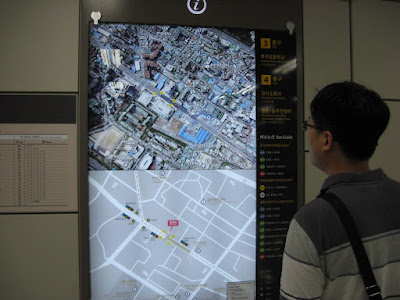I have just finished reading one of the most profoundly moving books I've ever read, and it's all true. The author is Tracy Kidder, whom I've been reading since the mid-80s when I was assigned
Soul of the New Machine for a scriptwriting class.
That book was about the upstarts of Silicon Valley, and it was followed by books like
House, about the process of building a new house, and
Among Schoolchildren in which he spent a year observing a fifth grade classroom. He's won the Pulitzer Prize and about every other award possible, because the man can write. He turns our ordinary experience into something fascinating and revelatory--one of his books is
Home Town about a small town in Massachusetts, largely seen through the experiences of a young town policeman.
Mountains Beyond Mountains, Random House, 2003, tells the story of Dr. Paul Farmer, who changed the world. It is different from Kidder's other books in a couple of ways: first, he appears as a character in this book; and second, it doesn't take the "ordinary" and make it seem extraordinary, it takes an extraordinary man and allows us to see how we ordinary people can be more like him.
Farmer, who is a couple years older than me, grew up in unusual circumstances in Florida, in a large family which for years lived in a jerry-rigged school bus, which the siblings called the Blue Bird Inn. After that they lived on a houseboat moored up Jenkins Creek somewhere in central Florida. The value of this upbringing is debatable, but it did give him a "very compliant GI system", the ability to sleep anywhere, study under any conditions and never have the need to call a specific place his "home".
These would come in handy as he worked his way through Duke and then Harvard Med School on full scholarship, meanwhile traveling back and forth to Haiti, where he set up a clinic to treat the multitude of destitute natives for their various ills, from machete wounds to AIDS and tuberculosis.
Over the years, his organization,
Partners in Health, has grown to become a leader in health care in the developing world by focusing on policy changes in government health agencies in the countries they work in, as well as providing clinical care for the sick and alleviating the root causes of illness: malnutrition, contaminated water and substandard housing. Patients in Dokte Paul's clinics are seen free of charge, and are usually given subsidies to ensure proper food--the organization works to provide potable water, sewage systems and education to those in the communities it serves.
Farmer has become one of the most important figures in shaping WHO and worldwide policy on the treatment of AIDS and tuberculosis, his organization changing the approach to MDR (multiple drug resistant) TB and AIDS, advancing social justice reforms, and forging cooperation among NGOs and official health departments in countries under its purview, including Russia, Peru and Haiti. Kidder traveled with Farmer to these locations time and again while researching the book.
He also spent many hours getting to know the amazing people in Farmer's circle, including Tom White, a key benefactor who plans to die penniless after making his final contribution to PIH; Ophelia Dahl, daughter of Roald Dahl and Patricia Neal, who Farmer wanted to marry, but who instead settled in as PIH's business manager; and Jim Kim, a Korean-American from St. Louis who takes on projects Paul can't manage, like the MDR/AIDS program in Russia's prisons, schmoozing with former Soviet apparatchiks by singing karaoke, to hold at bay an outbreak that threatened to overrun Russian society with a lethal cocktail of diseases.
Kidder finds a way to make people "ordinary" people fascinating and admirable--this is because he believes no one is ordinary. Similarly--or maybe conversely--this book makes the amazing achievements of Dokte Paul seem human, even
expectable. Paul Farmer is a revolutionary, the kind of liberal do-gooder that puts his money where his mouth is (hell, he doesn't even take a salary, despite being a world-class physician on the board at Harvard and Brigham, a high muckety-muck at WHO et al; when in Boston, he lives in a room above a Catholic Church rectory) that makes even Greenpeace activists or civil rights marchers uncomfortable with their lack of involvement. Yet, his actions seem ... perfectly reasonable.
Finally, the title,
Mountains Beyond Mountains:
The title comes from a Haitian proverb, which is usually translated as: "Beyond the mountains, more mountains." According to Farmer, a better translation is: "Beyond mountains there are mountains." I first heard the proverb from Farmer, and I remember that he told me, "The Haitians, of course, use it in a zillion different ways." Sometimes it’s used to express the idea that opportunities are inexhaustible, and sometimes as a way of saying that when you surmount one great obstacle you merely gain a clear view of the next one. Of course, those two meanings aren’t inconsistent, and I meant to imply both in the title. To me, the phrase expresses something fundamental about the spirit and the scale and the difficulty of Farmer’s work. The Haitian proverb, by the way, is also a pretty accurate description of the topography of a lot of Haiti, certainly as I experienced it in my hikes with Farmer through the mountains of the central plateau.--Tracy Kidder




























































